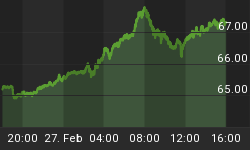 |
Gold •604 days | 2,368.70 | +35.30 | +1.51% |
 |
Platinum •15 mins | 2,373.50 | +133.90 | +5.98% |
 |
WTI Crude •13 hours | 67.02 | +1.81 | +2.78% |
 |
Gasoline •13 hours | 2.078 | +0.046 | +2.24% |
 |
Ethanol •604 days | 2.161 | +0.000 | +0.00% |
 |
Silver •604 days | 30.82 | +1.16 | +3.92% |
 |
Silver • 604 days | 30.82 | +1.16 | +3.92% | |
 |
Copper • 604 days | 4.530 | +0.111 | +2.51% | |
 |
Brent Crude • 12 hours | 72.87 | +2.03 | +2.87% | |
 |
Natural Gas • 13 hours | 2.859 | +0.032 | +1.13% | |
 |
Heating Oil • 13 hours | 2.671 | +0.058 | +2.24% |

Jim Karger
Contributor since: 22 Nov 2012
Biography
Jim Karger is a lawyer who has represented American businesses against incursions by government and labor unions for 30 years. He has been the subject of many feature articles, including, "Outlandish Labor Lawyer Gets No Objections From Staid Clients," published in The Wall Street Journal, and most recently was featured in an article entitled, "You Can Get There From Here," published by the American Bar Association. In 2001, he left Dallas, and moved to Mexico in the high desert of central Mexico where he sought and found a freer and simpler life for he and his wife, Kelly, and their 10 dogs. Today, Jim takes a handful of assignments each year, and speaks regularly to industry associations and employers on issues involving government regulation, over-criminalization, and privacy.
-
Someone Needs to be Held Accountable... and They Need to Pay
"Everyone wants to live at the expense of the State. They forget that the State lives at the expense of everyone." -- Frederic Bastiat Americans…
-
An American Success Story in Mexico: Jim Bourque Starr
Forward: Puerto Vallarta, Mexico -- This is an interview I completed December 2, 2012 with Jim Bourque Starr, chiropractor extraordinaire, whom I met several years…
-
Neither Management Nor Labor Killed The Twinkie: We All Did
I came close to avoiding the Twinkie topic entirely, if only because so many have already taken it on in animated, breathless fashion. The right-wing…






